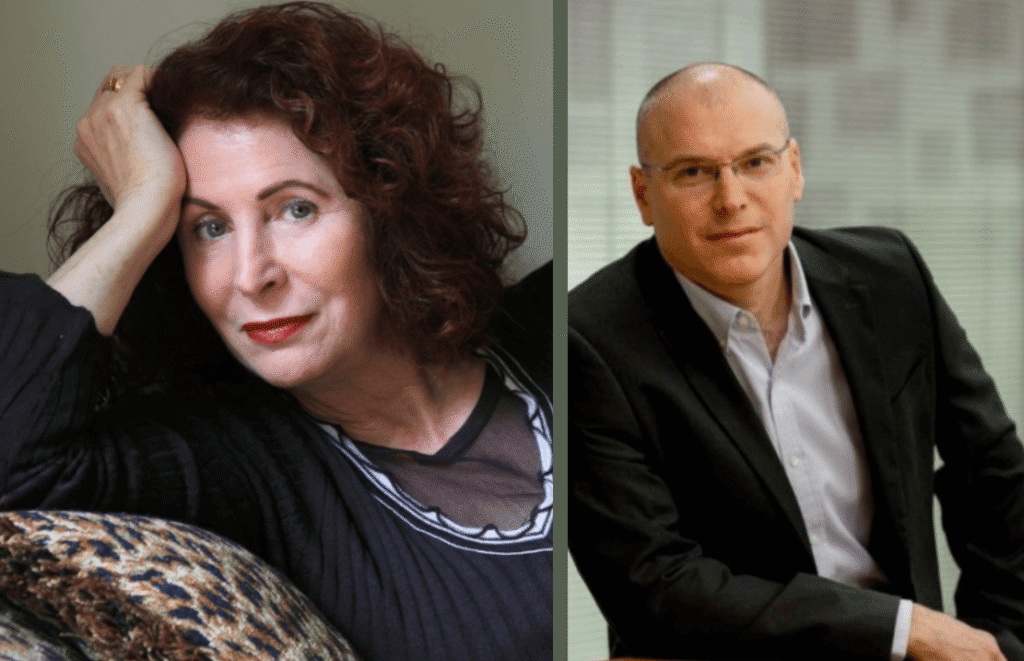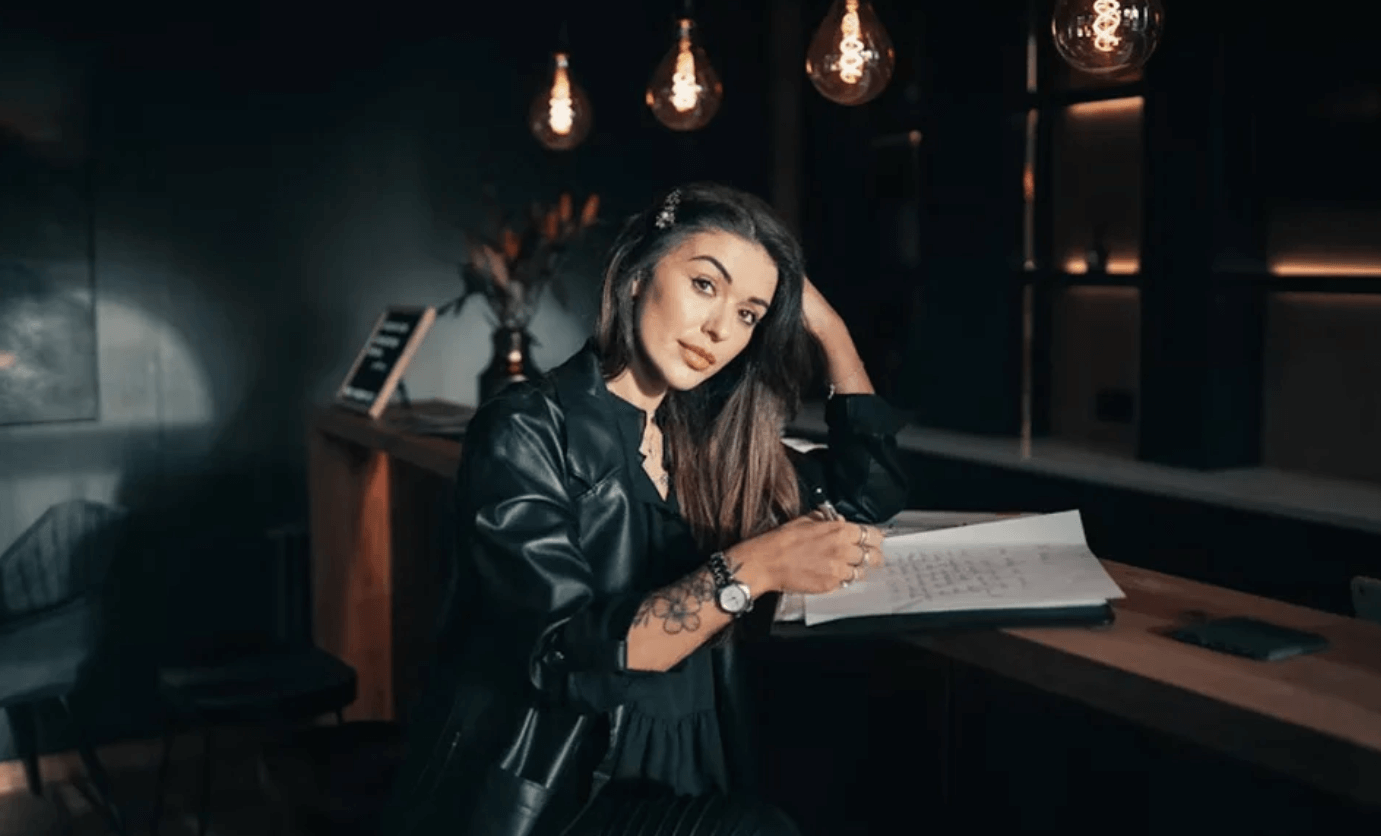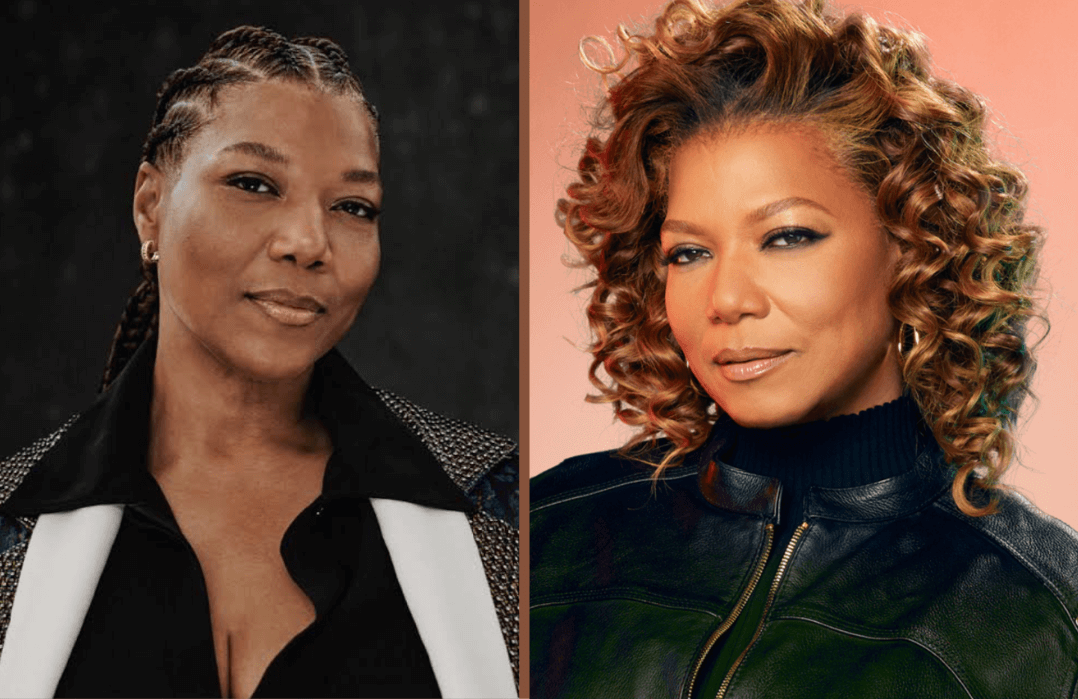In the ever-evolving world of contemporary art and social consciousness, Shani Levni has emerged as a bold and uncompromising voice. Known for her abstract visual language, cultural advocacy, and thought-provoking public talks, Levni blends creativity and activism into a single force. Her art navigates between personal identity, historical memory, and global justice, earning her a global audience and respected stature in academic and artistic circles alike. From her origins in Tel Aviv to the international art stages of Berlin, Shani Levni’s journey is one of transformation, self-discovery, and bold articulation.
Biography Table: Shani Levni – At a Glance
| Full Name | Shani Levni |
|---|---|
| Date of Birth | April 15, 1990 |
| Place of Birth | Tel Aviv, Israel |
| Nationality | Israeli |
| Occupation | Visual Artist, Cultural Activist |
| Education | BFA in Fine Arts, MFA in Art Theory |
| Known For | Abstract Art, Cultural Commentary, Public Advocacy |
| Parents | Amir Levni (Father), Dalia Levni (Mother) |
| Relationship Status | In a relationship with Maya Rosenthal |
| Languages | Hebrew, English, French |
| Current Residence | Berlin, Germany |
Shani Levni’s Early Life and Childhood
Born in the vibrant city of Tel Aviv, Shani Levni was raised in a household immersed in music, literature, and political awareness. As a child, she exhibited a deep curiosity about colors, textures, and the emotional resonance of stories. Raised during a time of shifting cultural landscapes in Israel, Levni often described her childhood as “rich in contradictions”—a mixture of security and uncertainty, tradition and change. Her earliest memories often revolve around neighborhood street murals and community festivals that ignited her lifelong passion for visual expression. These early experiences laid the foundation for what would become a career rooted in observation, empathy, and the courage to question.
Cultural Heritage and Family Roots
Shani Levni’s heritage reflects a mosaic of Jewish, Middle Eastern, and European influences. Her maternal grandmother was a Sephardic Jew from Morocco, while her paternal grandfather fled Eastern Europe during the late 1930s. This blend of diasporic identities deeply informed Levni’s understanding of culture, displacement, and memory. Her family gatherings were often filled with traditional music, multilingual storytelling, and philosophical debate. Such culturally layered environments taught Levni to navigate between identities, shaping not only her worldview but also her multifaceted artistic voice. Today, cultural heritage remains a central theme in both her personal life and professional creations.
Her Father: Amir Levni – A Scholar and Philosopher
Amir Levni, Shani’s father, was a respected professor of Jewish philosophy at Tel Aviv University. Known for his deep insights into ethics and history, Amir was instrumental in shaping Shani’s intellectual foundation. He often engaged her in long discussions about identity, morality, and the role of art in society. His influence can be seen in her reflective approach to both painting and public speaking. Amir’s work in post-Holocaust theology and interfaith dialogue had a profound impact on Levni’s early sense of justice and social responsibility, elements that permeate her activism today.

Her Mother: Dalia Levni – A Musician and Cultural Educator
Dalia Levni, Shani’s mother, is a classically trained violinist and cultural educator who worked for many years in Tel Aviv’s public school system. She was a champion of integrating arts into daily education and often brought home instruments, painting kits, and performance ideas for Shani and her siblings. Dalia’s dedication to fostering creativity in young minds greatly influenced Shani’s development as an artist. Shani often credits her mother with giving her the “tools to see beyond form,” allowing her to translate feelings into visuals that resonate on multiple levels.
Education and Studies
Shani Levni’s education reflects a harmonious balance between artistic training and academic inquiry. She earned her Bachelor of Fine Arts from the Bezalel Academy of Arts and Design in Jerusalem, where she focused on abstract painting and multimedia installations. She later pursued her Master’s degree in Art Theory from the University of the Arts in Berlin, where her thesis explored “Memory as Material: Postmodern Identity and Artistic Practice.” Her studies allowed her to explore critical theory, feminist aesthetics, and cultural semiotics, which continue to influence her artwork and public talks. Levni often bridges academic depth with visual storytelling, setting her apart from many contemporary artists.
First Steps in Creativity
Shani began exhibiting her work in small, underground galleries in Tel Aviv during her early 20s. Her first series, titled “Skin of Memory,” used recycled materials and fragments of family photographs layered with acrylic textures. Critics quickly noticed her ability to provoke deep emotional responses through minimalist compositions. Over the years, her work evolved to include digital projections, sound installations, and performance art. These early explorations were crucial in defining Shani Levni’s artistic voice—a voice that speaks to trauma, identity, and healing with both tenderness and strength.
Shani Levni’s Art and Style
Levni’s style is characterized by abstraction, layered symbolism, and an emotionally charged palette. She often blends personal memory with collective trauma, using unconventional materials such as worn textiles, sand, ash, and salvaged wood. Her famous series “Echo Chambers” (2019) used overlapping soundscapes and fragmented texts to explore the erosion of truth in the digital age. Another project, “Hollow Homes,” dealt with urban displacement and cultural erasure, exhibited in Berlin, Paris, and New York. Each of her exhibitions invites viewers to question the boundaries of perception, identity, and historical narrative, cementing her place in the world of contemporary avant-garde art.
Public Talks and Ideas
Shani Levni is not only an artist but also a highly regarded public speaker and intellectual voice in global cultural forums. She has delivered keynotes at TEDx, the Berlin Biennale Symposium, and UNESCO’s annual arts summit. Her talks usually center on the intersection of art, memory, and ethics in the modern world. She advocates for inclusive cultural representation, often speaking about the role of artists in conflict zones and marginalized communities. Through her lectures, Levni engages audiences in nuanced discussions about truth, identity. The evolving role of creativity in global healing processes.
Community Work and Advocacy
As an outspoken cultural activist, Shani Levni is deeply involved in community outreach. In 2021, she founded The Root Collective. An art-based nonprofit that offers workshops and residencies to youth from immigrant and refugee backgrounds in Europe and the Middle East. Levni strongly believes that art is a vehicle for empowerment and healing, especially among those affected by social injustice. Through partnerships with local governments, NGOs, and educational institutions. She has helped implement art therapy programs in refugee shelters and underserved neighborhoods. Positioning herself not just as an artist but as a force for social change.
Key Themes in Her Work
At the core of Shani Levni’s work are themes of identity, memory, displacement, resilience, and healing. Her art often raises important questions: How do we remember? What do we forget? Who gets to tell the story? These questions are explored through installations that use archival fragments, personal narratives, and abstract representations. One recurring motif in her work is the fragmented home—an echo of her family’s multi-generational migration stories. Levni’s exploration of gender, exile, and cultural survival places her work within the broader conversations of global justice, feminism, and post-colonial critique.
Collaborations and Cross-Disciplinary Work
Levni thrives on collaborative and cross-disciplinary projects. She has worked with choreographers, architects, poets, and climate scientists to create immersive, multi-sensory experiences. Her 2023 project “Water Doesn’t Forget”—in collaboration with climate activist Dr. Leila Zareen—used melting ice sculptures and ambient sound to raise awareness about environmental memory and climate grief. Through these efforts, Shani Levni pushes the boundaries of what art can be and whom it can reach. These collaborations also reflect her belief in the interconnectedness of artistic and civic responsibilities.
Shani Levni’s Impact on People
The impact of Shani Levni extends far beyond the art world. Her work has resonated with trauma survivors, displaced individuals, and young artists searching for a voice. Levni often receives letters and messages from people deeply moved by her installations and talks. Schools and universities frequently include her work in curricula related to identity studies, contemporary art, and ethics. For many, Levni represents a new wave of artistic leadership: emotionally intelligent, socially aware, and globally connected. Her influence continues to grow, touching lives in both visible and invisible ways.
Relationship and Personal Life: Maya Rosenthal
Shani Levni is currently in a relationship with Maya Rosenthal, a fellow artist and documentary filmmaker. The two met during an international artist residency in Lisbon in 2018 and have since collaborated on several multimedia projects. Their relationship is often described as a “creative partnership” fueled by mutual respect and shared values. Maya has publicly credited Levni as an emotional anchor and artistic inspiration, while Shani frequently refers to Maya as her “mirror and muse.” Together, they embody a new form of artistic alliance rooted in love, intellect, and shared purpose.
What’s Next for Shani Levni?
Looking ahead, Shani Levni plans to expand her advocacy and continue exploring new artistic territories. She is currently working on a book titled “Fragments of Us”, a hybrid of memoir, theory, and visual essays. She is also developing a new exhibition in collaboration with Indigenous artists from South America. Focused on sacred landscapes and memory politics. As her work gains more traction globally, it’s clear that Shani Levni’s influence will only grow stronger. Her future holds promise, and her journey continues to inspire those who seek to blend art with purpose.
Bottom Line
Shani Levni is more than an artist—she is a storyteller, an activist, and a visionary. Her life and work exemplify the power of art to heal, connect, and transform societies. Through her exhibitions, community work, and public engagements. She invites us to look inward and outward, to remember and to act. As the world grapples with complex issues of identity, justice, and truth. Voices like Levni’s are not only relevant—they are essential.
FAQs About Shani Levni
Q1: What is Shani Levni known for?
She is known for her abstract art, activism.
Q2: Where is Shani Levni from?
She was born in Tel Aviv, Israel, and currently resides in Berlin, Germany.
Q3: Who is Shani Levni’s partner?
She is in a relationship with Maya Rosenthal, a documentary filmmaker.
Q4: What are some famous works by Shani Levni?
Some of her notable works include Skin of Memory, Echo Chambers, and Water Doesn’t Forget.
Q5: Is Shani Levni involved in any social work?
Yes, she founded The Root Collective, offering art programs to immigrant and refugee youth.



